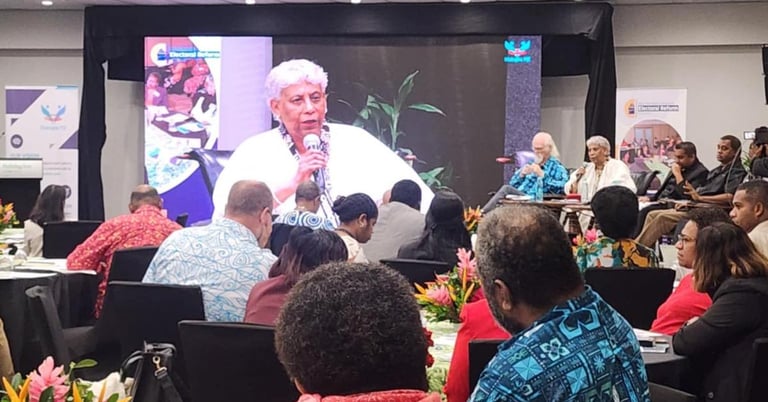Shaista Shameem: Electoral Reform Must Honour Diversity, Not Division
FIJI NEWS


Professor Shaista Shameem, Vice-Chancellor of the University of Fiji, has called for a more inclusive and forward-looking approach to electoral reform in Fiji—urging a shift away from language of conflict and division, and toward a celebration of diversity as the foundation for constitutional change.
Speaking on Day 2 of the Multi-Stakeholder Dialogue on Electoral Reform yesterday, Professor Shameem began by challenging the premise of the event itself.
“We’ve been told we are a conflict-ridden and divided society. But I think we should stop thinking of ourselves in those terms,” she said. “If we start by saying we are a diverse society, we are much more likely to make inroads into the constitutional and legal changes we want.”
Shameem emphasized the importance of language in shaping national consciousness and reform outcomes. Framing Fiji as a society rooted in diversity—cultural, political, economic, and gender-based—rather than one marred by conflict, would lay the groundwork for more constructive dialogue, she argued.
She further emphasized the need for reforms to uphold non-discrimination, even when aimed at representing minority or sectoral interests.
“Whatever change in the constitution is passed, it must ensure that it is not discriminatory—even when expressing interests based on minority groups,” she stated.
Professor Shameem also raised a pivotal constitutional question: whether the 1997 Constitution remains valid and applicable, and how its interpretation might affect reforms such as the potential reintroduction of the Senate or other structural changes to Parliament.
The Vice-Chancellor highlighted that all Fijian constitutions—from 1970 to 2013—have enshrined protections against discrimination.
These constitutional protections must remain central in any future amendments or laws, she insisted, particularly as they relate to evolving understandings of identity and representation.
Her remarks were both a legal caution and a philosophical argument for ensuring that reform efforts reflect principles of equality, dignity, and social cohesion, rather than simply reacting to political pressures or historical grievances.
“We must be sure that we are acting with our brains—not just with our feelings or prejudices,” she warned.
As the national dialogue on electoral reform continues, Professor Shameem’s message resonates as a call to rethink not just what changes are needed—but how we define ourselves as a society while pursuing them.